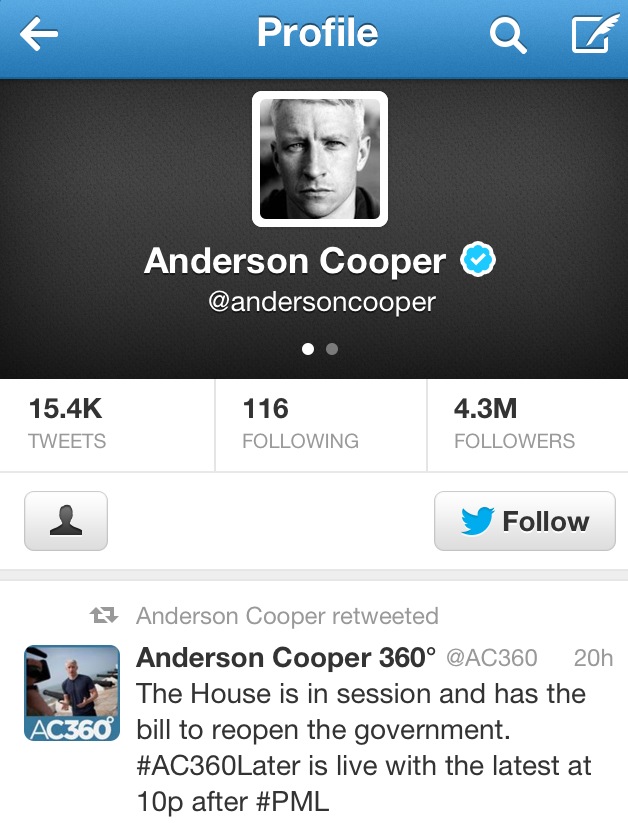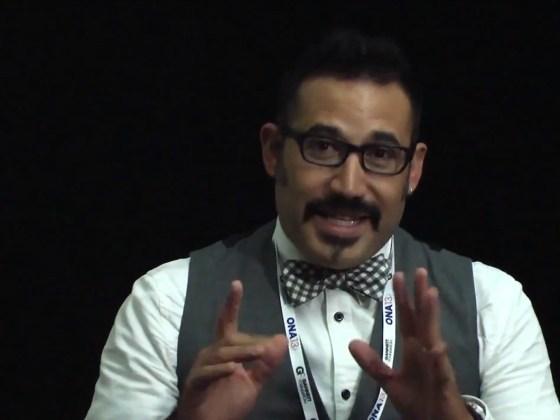
Mike Allen. Nate Silver. Brian Stelter. David Carr. Anderson Cooper.
They’re all big names in the media industry, partially thanks to their personal brands. Journalistic value and credibility were once the responsibility of overarching news outlets, but in the digital age, more attention is being paid to the “who” rather than the “where” – as in “Where do you work?”
“As people consume media, that’s much less important,” said Politico Managing Editor Bill Nichols, who noted readers pay less attention to where news comes from than to whom it’s from.
Politico’s Chief White House Correspondent Mike Allen is a prime example. Allen has built a name for himself in the political journalism world and is known for his morning tipsheet, “Playbook,” a compilation of the most important news of the day. Allen also has more than 200,000 Twitter followers.
“We love that,” Nichols said. “It only reflects well on the publication.”
But is branding a good thing for the journalism industry as a whole?
Nichols thinks so. One of the reasons he thinks journalism failed to change with the times was a focus on the corporate set-up, to the point where there was some “discomfort” if a singular person became bigger than his or her media outlet.
“That’s not the world we live in,” Nichols said.
BuzzFeed Editor-in-Chief Ben Smith, himself a big name in digital journalism, wrote in an email that he’s “not sure if it is good or bad – it does create a more dynamic, competitive ecosystem.”
But, he noted, “people are looking for voices they trust, which can be a reporter or a news organization.”
Others aren’t a fan of the idea of personal branding in journalism. Washington Post columnist Gene Weingarten wrote a column in 2011 in response to a reader’s questions on branding and pointed out some of the trend’s drawbacks.
“I hate the term,” Weingarten said via email in reference to branding. “If it is important, that signals to me a weakness in modern journalism. Everything about the term implies that the first goal of a journalist is to get noticed, as opposed to writing worthy truths.… The fact that branding is being taught in j-schools appalls me.”
But Scott Kleinberg, social media editor at the Chicago Tribune, said he thinks the increase in branding is good for the journalism industry.
“If you have 50 people from a newspaper shouting that paper’s mission from the rooftops, you have 50 more entries into following that paper,” Kleinberg wrote in an email. “When reporters or staff members are such a key part of things, it boosts the paper’s credibility and provides new entry points into getting to know that brand. I believe, especially in a time of turmoil when we’re worried about keeping subscriptions going and readers happy, that the right kind of social media interaction and proper branding can lead to new readers and new fans.”
What do you think? Tweet us using #ONA13news and tell us if you think branding is a good thing for journalism in the digital age.







You must be logged in to post a comment.